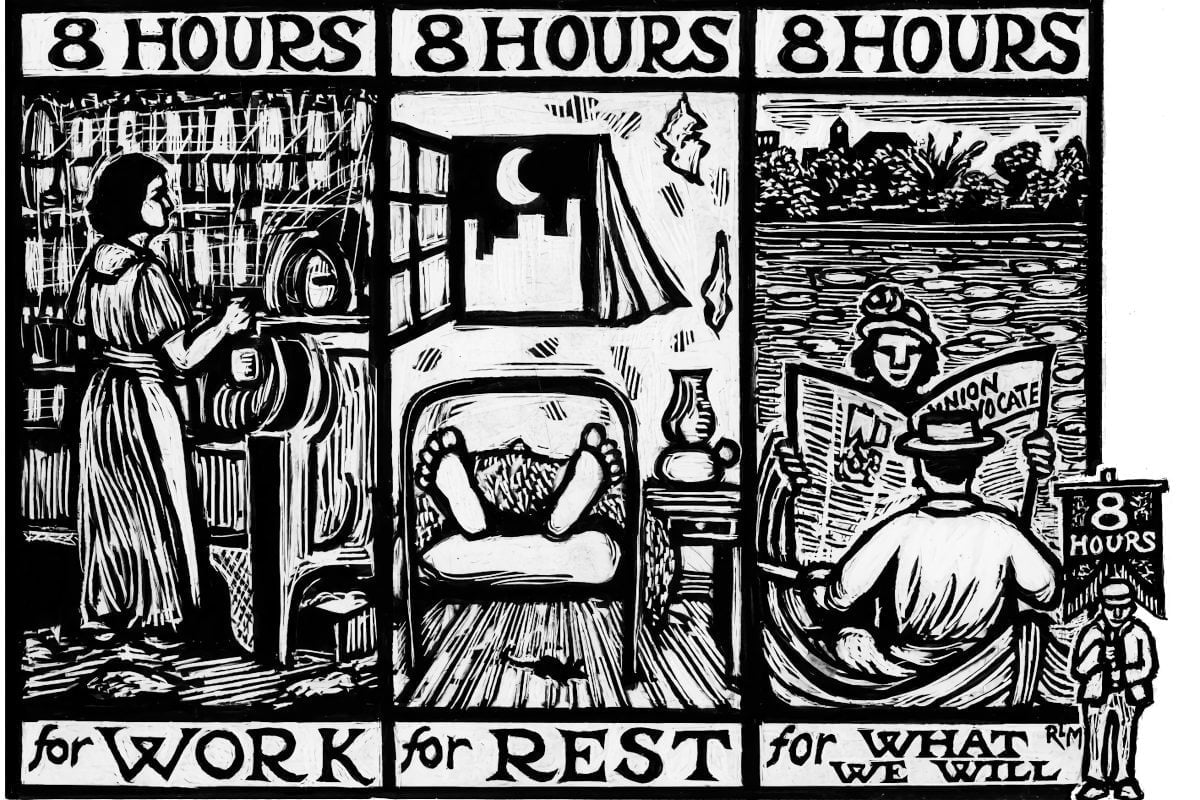As the economy contracts, the availability of paid work is in decline. Yet workers today also have less leisure time. Under capitalism, all the gains of productivity fall to an elite few. We need a socialist plan to end unemployment and overwork.
A new study by the Resolution Foundation has found that British workers now have less leisure time available than they did 40 years ago. This comes despite a reduction in the length of the average working week.
Instead of having increased leisure time, workers are having to spend more time doing unpaid work such as cooking, shopping, and childcare. Women in particular are spending on average an extra half an hour a day just on active childcare, while also spending 45 minutes a day longer in work than in 1974.
The study in fact found the only group with more leisure time to hand were those in the lowest income quartile. This too, however, does not reflect any better conditions for workers. The priority for those on low incomes is precisely to secure more hours of work in order to make ends meet.
The Foundation states that for low-income workers “the impact of the crisis is a deeply unwanted reduction in their working hours”.
This is an inevitable result of the capitalist system. The benefits of increased productivity are enjoyed by the capitalists at the expense of workers, who instead see unemployment and low wages.
Incredibly, the conclusion drawn from this study by George Bangham, an economist at the Resolution Foundation, is that calls for a four-day week are misguided. Bangham asserts that this would not benefit low-income workers and would not necessarily lead to more leisure time.
 Of course, so long as the profit system continues to exist, it is true that increased productivity will not lead to more leisure time for workers.
Of course, so long as the profit system continues to exist, it is true that increased productivity will not lead to more leisure time for workers.
For workers to be able to enjoy the benefits of increased productivity, work needs to be shared out without loss of pay.
Only in this way can we provide jobs for all, while decreasing the hours of the working day. This should include the provisioning of free, high-quality childcare, public restaurants, and leisure facilities.
These demands are becoming even more relevant as the government’s furlough scheme winds down and the prospect of mass unemployment looms. In the face of this dire situation for workers, the labour movement must fight armed with the slogan “for work or full pay!”
Such a programme can only be carried out if the working class takes control of production, by nationalising the commanding heights of the economy under workers’ control and management.
On this basis, the huge resources of the economy could be organised on the basis of a democratic, rational, socialist plan of production.
The contradiction of mass employment for millions alongside overwork for millions more could be eliminated almost overnight. Instead, we could ensure that increases in productivity lead to more leisure time and higher living standards for all.






